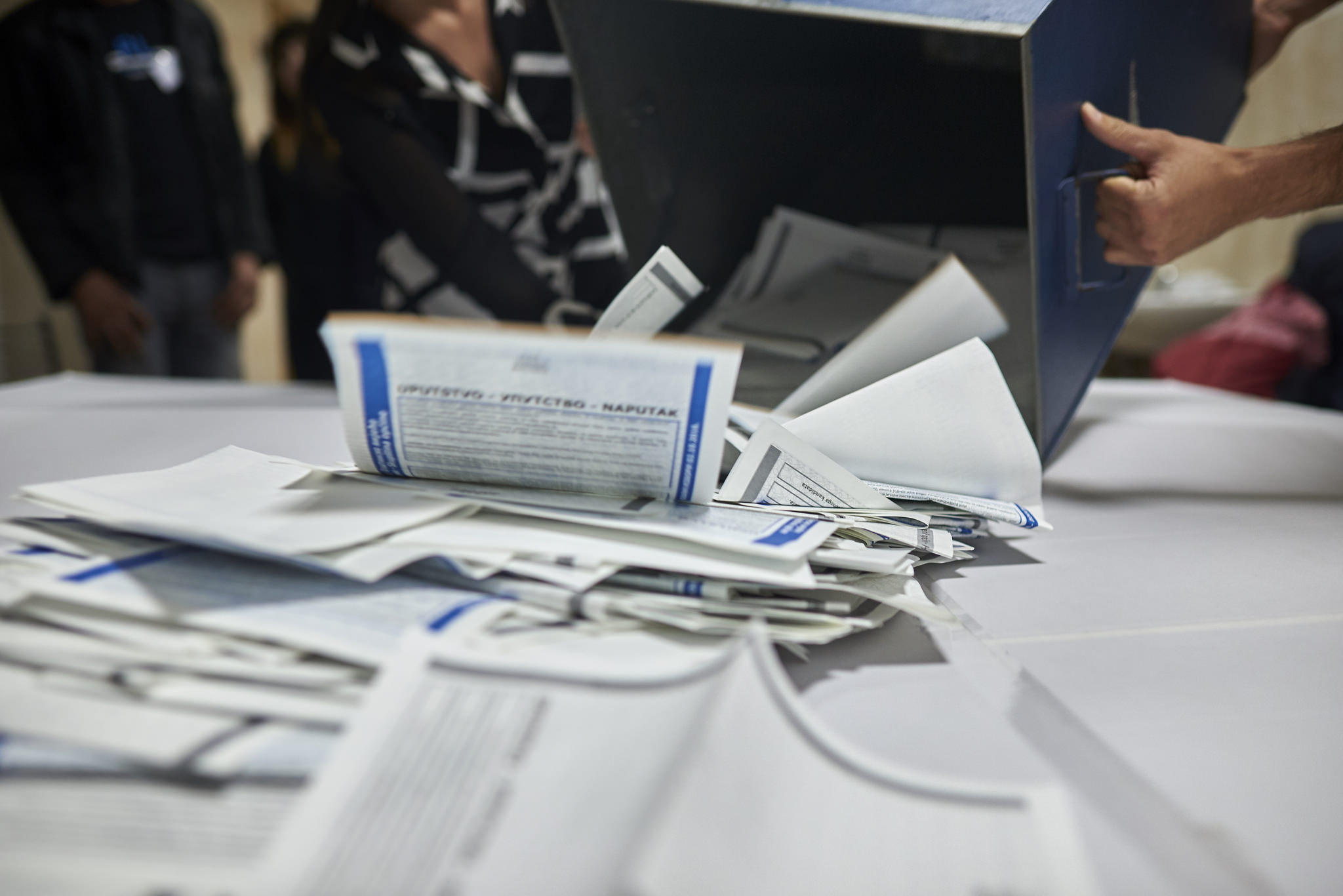Elections in the Baltic and Balkans
This weekend the citizens of Latvia and Bosnia and Herzegovina had the chance to influence the direction of their countries.
October 8, 2018 -
New Eastern Europe
-
News Briefs

Local elections in Bosnia and Herzegovina in 2016 Photo: Sandro Weltin, Council of Europe (cc)
The vote in Latvia took place on Saturday the 6th of October, with the Bosnian and Herzegovinian one a day later. The political systems and contexts of the two elections could not be more estranged. However, there is one similarity that catches the eye. The turnout was more or less the same, around 54 per cent.
Wanting Harmony
In the case of Latvia, this was the lowest voter turnout since its independence from the Soviet Union in 1991. The winner was the same as in the last three elections for its parliament (Saeima) – the Social Democratic Party “Harmony”, with 19.8 per cent of the vote. The party’s candidate for post of Prime Minister is the incumbent mayor of Riga – Nils Ušakovs. This is a party that represents the significant Russian minority in the country. The party is portrayed as a Russian friendly populist leftist party in many of the European media reports on the elections. The party has voiced it would keep Latvian commitments to both the EU and NATO. Russia is never far from Latvian politics and Harmony is expected to try and bring it closer through increased trade and business.

Prime Minister candidate Nils Ušakovs
While lengthy negotiations about how a government should look like are expected, it is probable that Harmony will attempt a coalition with number two and three in the elections. A right-wing populist and anti-establishment party created two years ago known as the KPV LV (“Who owns the state”) received 14.2 per cent in its first attempt. The other potential suitor is the pro-European JKP (New Conservative Party), which received 13.6 per cent of the vote. Harmony has previously failed to attract coalition partners to form a government, but all points to things being different this time around. A coalition with the other populists would create a majority of 55 seats in the 100-member Saeima.
The biggest losers of this election was undoubtedly the alliance of the Liepaja Party with the Union of Greens and Farmers. The party of the incumbent Prime Minister Māris Kučinskis lost 10 seats. All in all 16 parties took part in this election and 7 made it through to the parliament.
Dodik’s ploy
The complex political system that came out of the Dayton Agreement in 1995, has been attributed with both keeping the peace in Bosnia and Herzegovina, and the socio-economical stagnation plaguing the country. Bosnia and Herzegovina has the highest unemployment among young people in Europe and frustrating levels of corruption of the political class. One of the main topics of the election campaign was the massive brain drain and emigration of the younger population. With such pressing issues it is not not difficult to utilise national feelings as political capital. This is especially true in a federation held together by a 22 year old fragile ethnic consensus.
The unique triple presidency was at stake this election. The straightforward leader of the Bosnian Serbs, Milorad Dodik did not hide his intentions leading up to the elections, where he has played on Serbian grievances towards the Muslim Bosniak’s and Croat minorities. His ultimate goal is the independence of the mainly Serbian Republika Srpska. Dodik, a proponent of closer ties with Russia hoped the election would bring the disintegration of Bosnia and Herzegovina a step closer.

Presidential candidate for the Bosnian Serbs Milorad Dodik
The election was already heated and contested before its date, with claims of fraud and lack of legal basis. The country’s Central Election Commission reported that all 5516 polling stations closed down in time or with slight delay. According to the official reports the elections passed in an overall calm and peaceful atmosphere.
Milorad Dodik declared victory in the vote for his community’s seat on three-member presidency. The main Bosniak party claimed Šefik Džaferović, would be the Muslim representative while, Željko Komšić was re-elected for the Croat presidency.

































